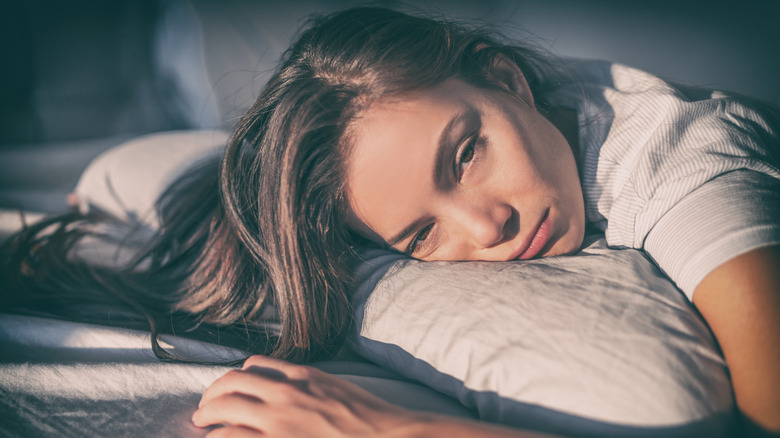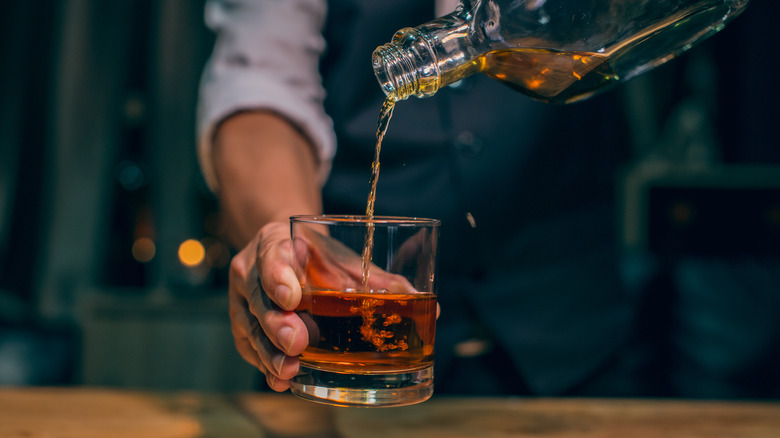What Is A Prairie Oyster And Does It Really Cure A Hangover?
A night out can leave you with a lot more than lasting memories and a bad taste in your mouth. Too much fun can give you a hangover, which means you might be facing a range of symptoms (via the Mayo Clinic). These include nausea, vomiting, headaches, body aches, fatigue, and irritability.
Hangover symptoms are all too familiar to some people. Because everyone is different, there's no specific number of drinks that can be safely consumed without risking a rough morning the next day (via the National Institute on Alcohol Abuse and Alcoholism). The only way to avoid hangovers is to avoid heavy drinking and opt for a moderate number of drinks whenever you indulge.
Unfortunately, even the best intentions can be left behind when the party gets going. A few drinks turn into a few too many, and the next morning may start off with those old familiar symptoms. There are countless "remedies" floating around on the internet, all of them promising relief. One of those remedies is the Prairie Oyster, a cocktail with a couple of interesting ingredients in addition to the alcohol. "Interesting" doesn't always mean effective, however.
A cocktail may not always be a cure
Prairie Oysters are, as described by The Guardian, "old-fashioned" cocktails. They contain rum, Worcestershire sauce, red wine vinegar, a little Tabasco sauce, and 1 raw egg yolk. Drinking a bit of alcohol on the morning of a hangover is called taking "a hair of the dog that bit you." The phrase — and its practice — is so common that it has been the subject of research. As The Guardian points out, however, it doesn't actually help very much.
This is because, as described by the Mayo Clinic, hangovers have their roots in dehydration and inflammation. Alcohol stimulates the body's urine production, which leads to dehydration. This, in turn, leads to symptoms like thirst, dizziness, and lightheadedness. Alcohol can also set off an inflammatory response, which leads to feelings of confusion, memory issues, and fatigue or malaise.
The National Institute on Alcohol Abuse and Alcoholism (NIAA) states that drinking a little alcohol to alleviate a hangover may reduce immediate symptoms, but it's not a cure. The symptoms may simply be delayed for a time, prolonging the overall length of the hangover. As the Guardian adds, drinking more alcohol to alleviate a hangover can lead to other problems. Ultimately, the Guardian and the NIAA recommend eating and drinking water between each alcoholic drink to avoid a hangover altogether, rather than relying on the old standby, the Prairie Oyster.


